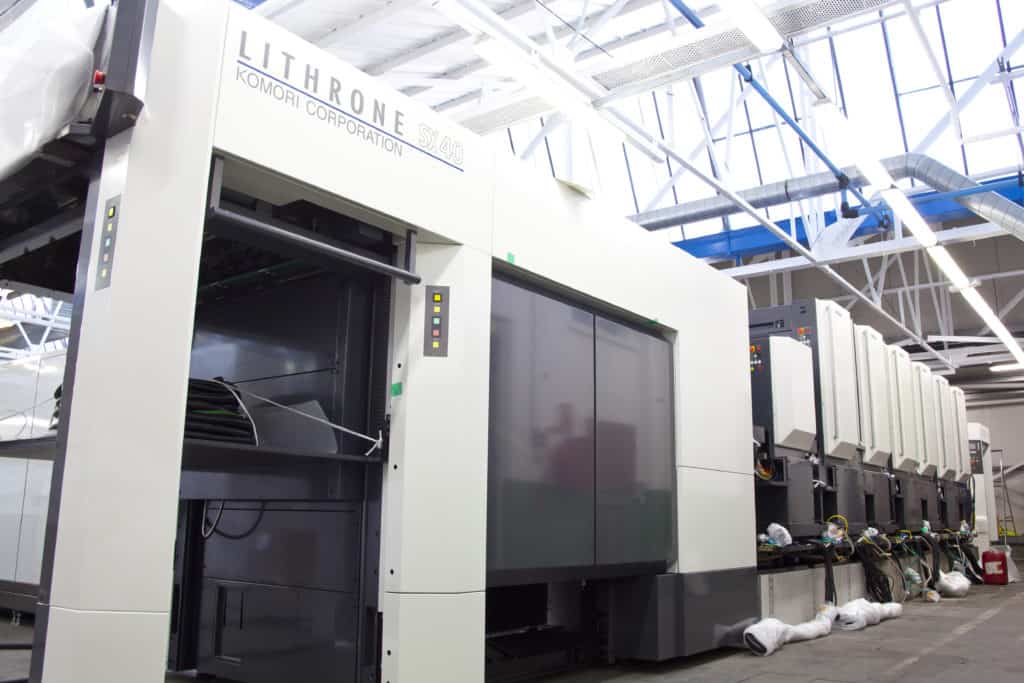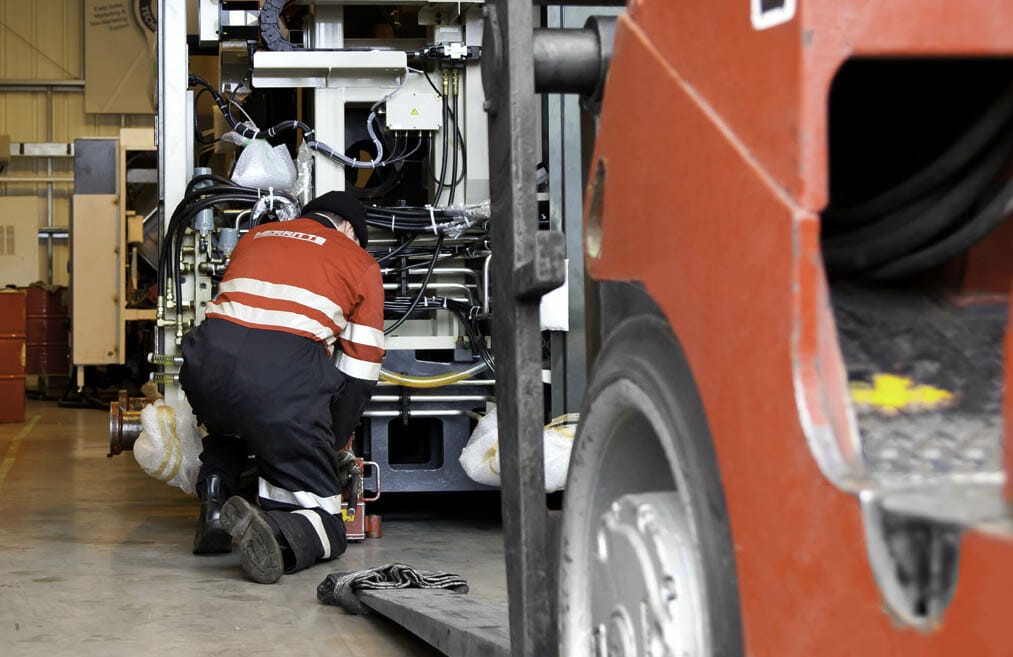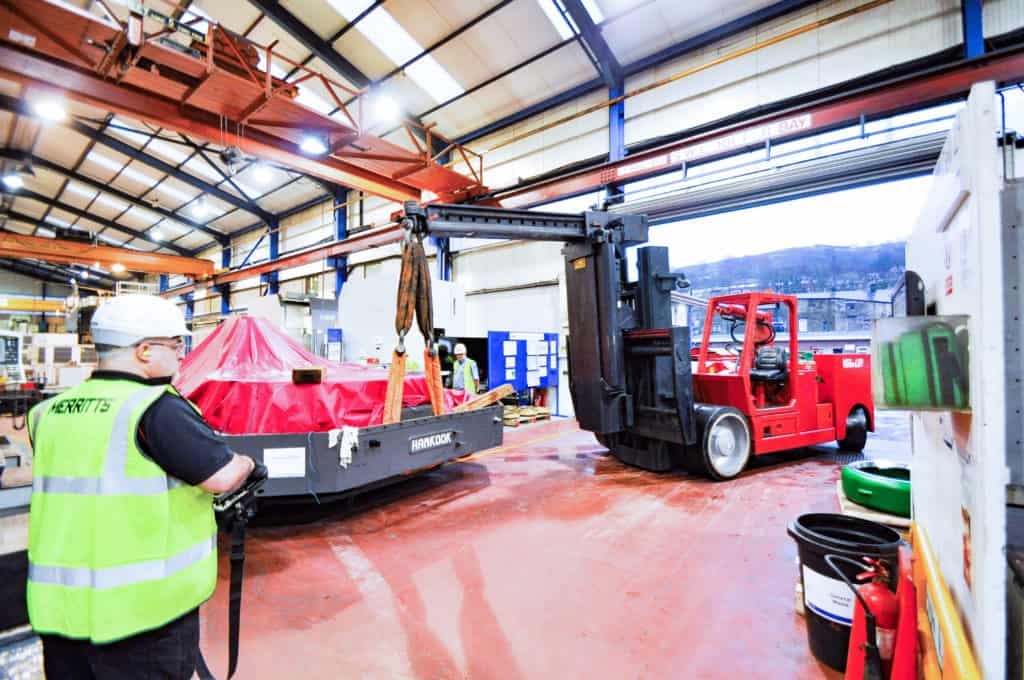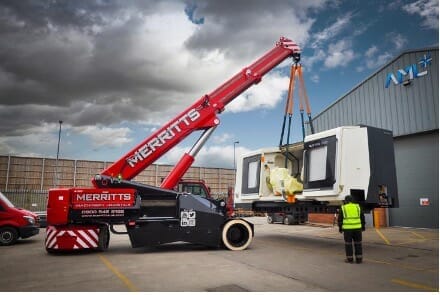Call FREE: 0800 046 9840
Email us: enquiries@merritts.uk.com


If you are a factory manager, project manager, operations director or manager who has been given the responsibility for planning a heavy machinery moving project, here are some top tips that may help you meet deadlines and budgets in a safe and cost effective manner.
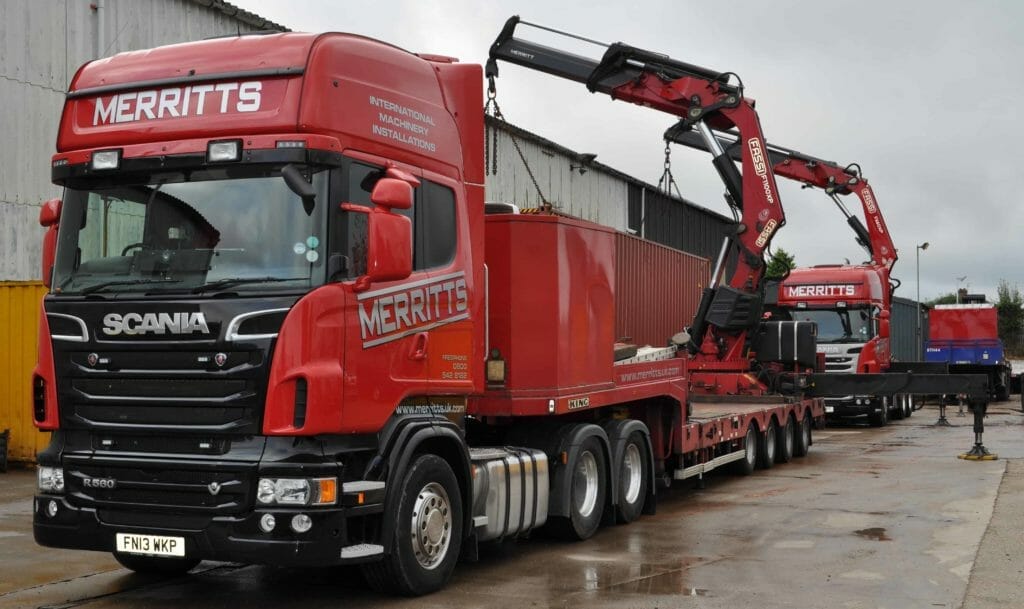
TIP 1 – PLAN EARLY
As soon as you know a project may be taking place, it’s time to start planning! The earlier you plan the better, as you will be able to plan the exact detail and ensure the equipment and transport you need is available exactly when you need it. This is especially important if you are planning to appoint a specialist heavy machinery moving company or need to carry out the project on a specific date or within a defined timeframe.
It also means you have more time to ensure all health and safety issues have been considered. This helps to avoid last minute hiccups and ensure the correct processes are followed and the right documentation is produced.
TIP 2 – USE A HEAVY MACHINERY MOVING SPECIALIST
There is always the option to do the job yourself using your existing workforce with hired in equipment, but if you choose to do so, you will need to demonstrate that the project team has the required competencies to complete the tasks safely.
Health and safety law requires that works are carried out by competent people. Competence should be considered a combination of training, experience and behaviour. You may well have employees who are trained to drive a forklift truck but if they only work with palletised loads day to day, they may not have the required experience to use the same equipment to move a machine or other heavy load. This could lead to some awkward questions from the HSE or your insurers should an accident occur.
Appointing and consulting with a heavy machinery moving company means you will be able to access their knowledge and expertise. They will also have all the specialist lifting tackle and transport equipment to ensure the machine is transported and installed safely.
Using a specialist means being able to demonstrate your project risk has been assessed by experts and your project will have all the necessary supporting regulatory documentation.
TIP 3 – UNDERSTAND OUTSIDE INFLUENCES
There are numerous outside influences that should be considered during your project scoping review, these include:
- Transport – planning special assistance to accompany your heavy/slow load
- Road/Rail – ensuring there are no major road or rail disruptions that may delay or hinder the journey
- Space – what are the space confinements both inside and outside the location of the machine
- Weather – whilst this cannot be predicted, there may be seasons or months that are best avoided
TIP 4 – TIMING
Very often manufacturers plan projects around scheduled factory shutdowns, such as Easter, Christmas and Summer holidays – and by definition this can be a busy time for companies hiring the specialist gear you need.
If you do not plan well in advance, it can mean paying a premium price or having to use companies who may not have all the right skills, experience and health and safety accreditations to ensure your project runs smoothly without any accidents!
TIP 5 – KNOW YOUR LEGAL OBLIGATIONS
You will need to demonstrate that a full assessment of the project and its risks has been completed. We recommend taking specialist advice from an expert who can advise on the safest way to do the job, who can also provide the appropriate supporting documentation such as method statements, risks assessments and service records.
Regulation 5 of the management of health and safety at work regulations 1999 requires that the health and safety arrangements in place are suitable for the size of the undertaking, and that work is suitably planned, organised and controlled. Further to this where an employer has 5 or more employees these arrangements must be recorded.
There is also the question as to whether the project falls under ‘The Construction Design and Management regulations (CDM).
The HSE executive are very hot on enforcing regulation and punish breaches severely. If you are unable to demonstrate that you followed industry best practice the penalties can include heavy fines and imprisonment.
If you are planning a heavy machinery moving project, please complete the enquiry form.
